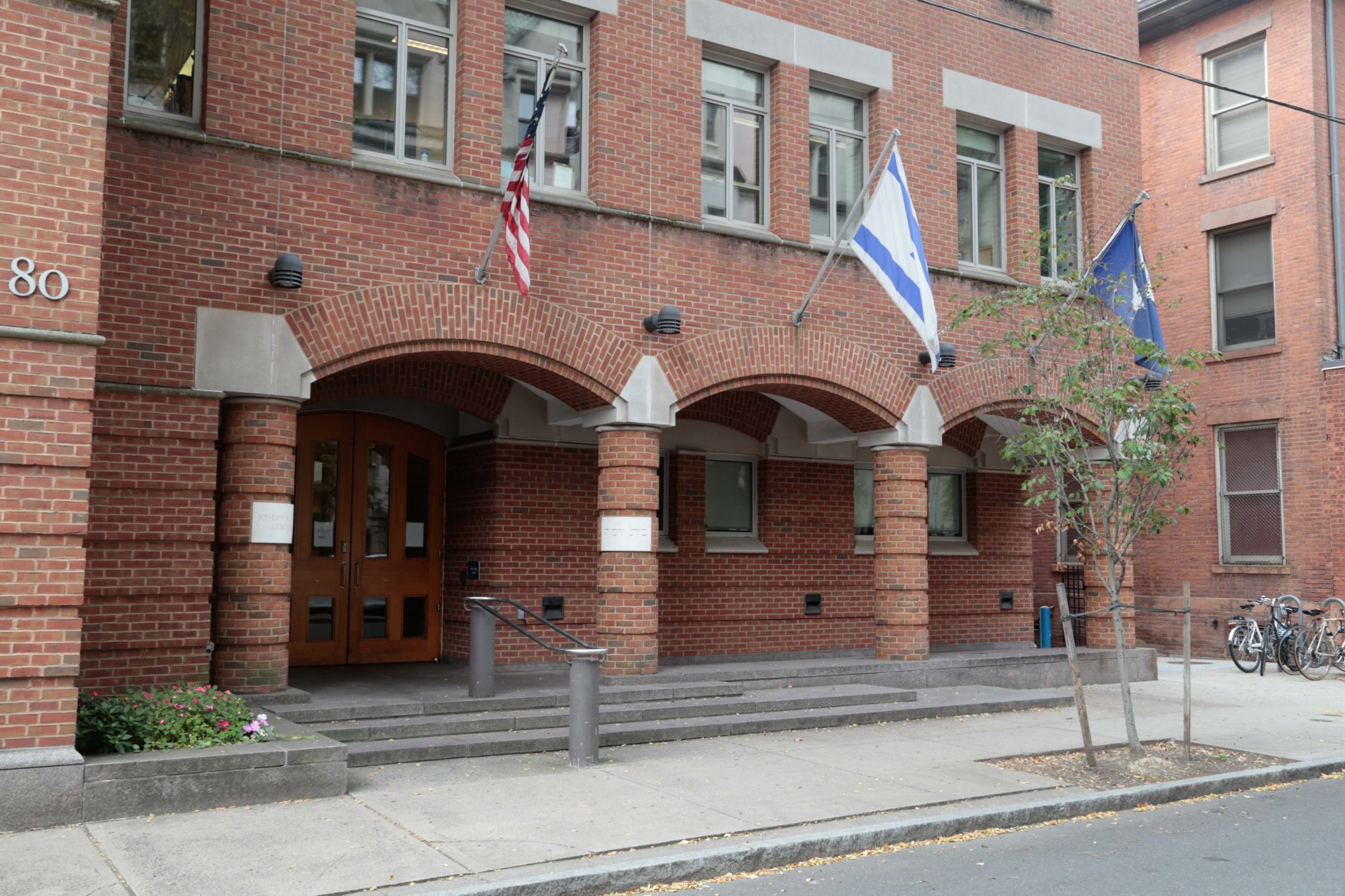
Yale Daily News
Amid heightened awareness of sexual misconduct in the #MeToo era, the Joseph Slifka Center for Jewish Life at Yale is taking steps and planning further action to improve its policies and culture surrounding sexual harassment in the Jewish community at Yale.
Last December, members of Move On Sexual Harassment and Assault, or MOSHiA — a new student group formed to hold the center accountable to its commitment to address sexual harassment — met with Slifka staff to advocate for the development of new, robust policies to address sexual violence, MOSHiA organizer and staff columnist for the News Avigayil Halpern ’19 told the News in January. In January, Slifka leadership announced in an email to the community that they had started to revise policies as well as plan trainings for staff and affiliate student organizations on the issue of sexual harassment.
Now, several months later, Slifka has started delivering on its promises by training staff members who directly interact with students, soliciting anonymous feedback from community members and hosting a community discussion on Monday.
“We’re right now at the stage where we’re collecting information to develop the policy,” Halpern said. “That’s been taken pretty seriously by professional leadership. It’s taken some student nudging I would say, because there’s a lot going on all the time, so it’s definitely been a combination of us pushing. … The staff has been very receptive to the push.”
In an email to the Slifka community two weeks ago, Rabbi Jason Rubenstein summarized the steps the organization has taken since January to start codifying anti-harassment policies and to improve the community climate.
According to Rubenstein’s email, Slifka staff members have met with the Title IX office, officials from Sexual Harassment and Assault Response & Education Center and the Communication and Consent Educators, Hillel International’s Director of Talent Management Amy Martasin and experts on handling cases of sexual harassment within Jewish communities.
“Rabbi Rubenstein and others at Slifka have been very proactive in reaching out to my office and the CCEs,” said Melanie Boyd, director of the Office of Gender and Campus Culture. “We’ve already begun to work more closely and anticipate many productive collaborations.”
Rubenstein told the News that he has received “differing accounts” of how Slifka’s own policies will interact with Yale’s Title IX policies on harassment. He said that Title IX applies to Yale students, staff, faculty members and administrators, but Slifka is its own 501(c)(3) organization that “exists more or less independently of Yale” and has many employees — such as himself — that were hired by the Slifka Board of Directors and not by the University.
Rubenstein’s email stated that the staff members presented their ideas for the establishment of anti-harassment policies to the center’s Board of Directors in January, and they received an “enthusiastic response.” Furthermore, all student-facing staff members underwent SHARE training in February, and trainers were selected for staff, supervisors and board members in March. The email also said that Carole Goldberg, the founding director of SHARE, agreed last month to consult the Slifka staff throughout the process of developing its sexual misconduct policies.
On Monday, Rubenstein and Goldberg co-facilitated a community conversation — which attracted about 20 student and staff attendees — to gather input and suggestions on the new efforts and to workshop proposed policies.
At the discussion, Rubenstein updated attendees on Slifka’s progress in developing anti-harassment policies, stressing that this discussion needs to happen “before and not after” incidents of harassment. He highlighted that it has become easy to just blame “bad actors” for these incidents, rather than acknowledge “real moral gaps and failings on the part of institutions.”
After Goldberg and Rubenstein’s opening remarks, attendees broke into groups to discuss topics related to both anti-harassment policy and Slifka’s culture. During the policy portion of the conversation, attendees could choose to discuss proposed drafts of either a student leader code of conduct or board code of conduct and staff policy.
“I was really happy to see how many ideas people had about how we can actually make this a workable policy that impacts as many people as possible,” said Gabriel Klapholz ’22, a member of MOSHiA and a staff columnist for the News. “I think everyone who came to the meeting is really invested in the safety of the people who walk through these doors, and to me that’s really reassuring as someone who’s been working on this for the past few months.”
Rubenstein’s March 27 email highlighted that Slifka this semester expects to establish a standing committee of staff members, students, board members and others to update policies and schedule meetings. The center’s leadership intends to finish drafting anti-harassment policies that will apply to Slifka staff members, students, board members, vendors, community members and donors by this summer. By then, it will also complete a draft of an anti-harassment agreement for all leaders of Slifka-affiliated student groups. The center also plans to complete all trainings for staff members, supervisors and members of the board of directors by fall 2019.
Sasha Stern ’19, one of the co-founders of MOSHiA, said she was “encouraged” by Monday’s meeting and by how many different communities within Slifka were represented there. She stressed that she believes it is important to build “comprehensive, intergenerational” policy that recognizes the power dynamics within the Jewish community, and for that process of policymaking to include students on every step of the way.
“We have a responsibility to do this as humans and as a religious community and as a Jewish community,” Stern said. “It was an unacceptable oversight not to have something like this in place. It’s necessary work.”
The Slifka Center opened in 1995.
Asha Prihar | asha.prihar@yale.edu







